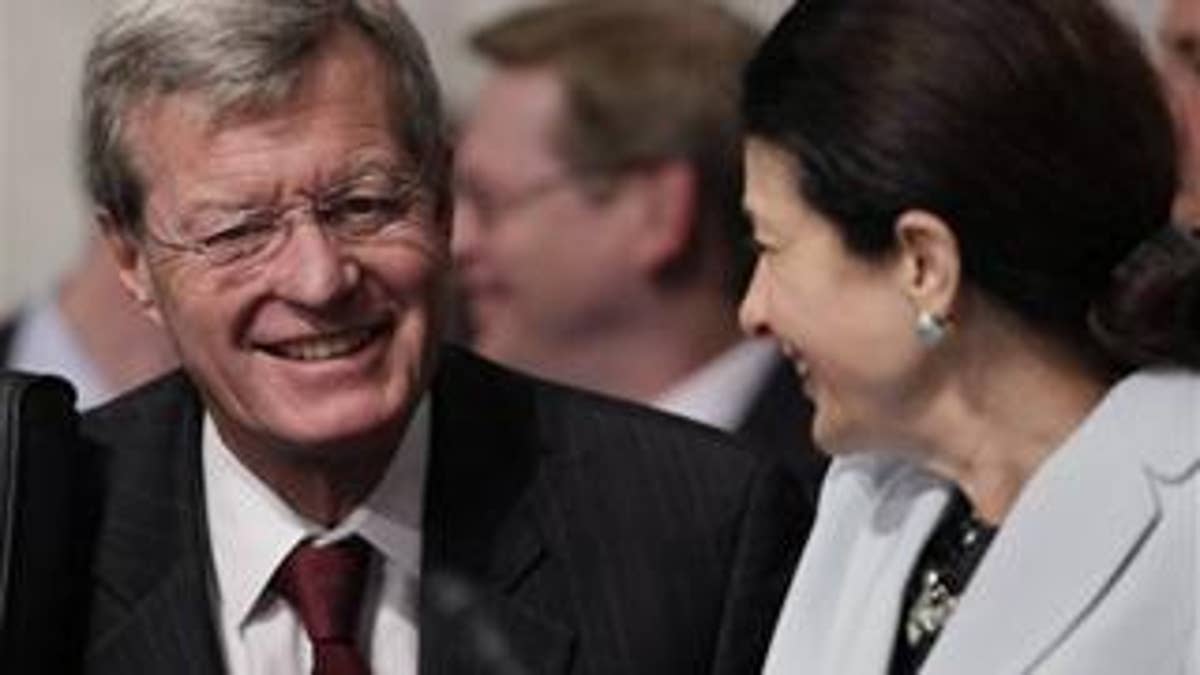
WASHINGTON -- Senior White House officials met with Senate Democratic leaders Wednesday to begin an arduous process of merging different health care bills voted out of committee.
White House Chief of Staff Rahm Emanuel and Health and Human Services Secretary Kathleen Sebelius huddled with Senate Majority Leader Harry Reid and other top Democrats for more than an hour.
"Very productive," Sebelius said, describing the first of what will be many meetings among Democrats over how to merge five congressional health care bills into versions that can win a majority in the House and get the 60 votes needed to pass in the Senate -- even as the Congressional Budget Office admits it can't confirm whether the legislation will save Americans a dime.
"The conversations are just starting and I think people are just eager to keep the momentum going," Sebelius said.
Obama sent the White House officials to help close the deal with Democrats who remain divided over the details of the bill.
Others who attended Wednesday's meeting were Sen. Christopher Dodd, D-Conn, who shepherded the Health Committee bill, and Sen. Max Baucus, D-Mont., who oversaw the Finance Committee bill that was approved Tuesday.
On the other side of the Capitol, Speaker Nancy Pelosi and her lieutenants have been at work for weeks trying to blend legislation approved by three House committees. The result is certain to include a government insurance plan, but the details of the "public option" have split the rank and file, and leaders have spent days struggling with the issue.
Reid has said he wants to complete the wedding quickly and get historic health care overhaul legislation onto the Senate floor by the week of Oct 26.
Both bills were written by Democrats, but that's not going to make it easier for Reid. They share a common goal of providing all Americans with access to affordable health insurance, but they differ on how to accomplish it.
The Finance Committee bill has no government-sponsored insurance plan and no requirement on employers that they must offer coverage. It relies instead on a requirement that all Americans obtain insurance.
The Health Committee bill, passed earlier by a panel in which liberals predominate, calls for both a government plan to compete with private insurers and a mandate that employers help cover their workers. Those are only two of dozens of differences.
Obama acknowledges it's not going to be easy to craft a final bill. Speaking Tuesday in the Rose Garden, the president called the 14-9 Finance Committee vote "a critical milestone" toward getting health care overhaul this year. The legislation won its first Republican support when Sen. Olympia Snowe of Maine broke ranks with her party, saying she was answering the call of history.
Obama wasn't ready to bask in the bipartisan glow.
"Now is not the time to pat ourselves on the back," he said. "Now is the time to dig in and work even harder."
There was no victory lap for Baucus, either. "The bottom line here is we need a final bill, a merged bill, that gets 60 votes," he said. "Our goal is to pass health care reform, not just talk about it."
But Douglas Elmedorf, the Congressional Budget Office chief, said during committee debate that he couldn't confirm the impact of the bill on total health spending across the country and on insurance premiums.
"We can't assess the effects on national health expenditures," he said. "There are so many conflicting forces, we have not been able to assess the effect on premiums."
Aides say Reid, of Nevada, has a keen sense of what the Senate will pass and he is focused on finding a solution that can get the 60 votes needed to overcome a Republican filibuster.
In general, bills moving toward floor votes in both houses would require most Americans to purchase insurance, provide federal subsidies to help those of lower incomes afford coverage and give small businesses help in defraying the cost of coverage for their workers.
The measures would bar insurance companies from denying coverage on the basis of pre-existing medical conditions and for the first time limit their ability to charge higher premiums on the basis of age or family size. Expanded coverage would be paid for by cutting hundreds of billions of dollars from future Medicare payments to health care providers. Each chamber also envisions higher taxes -- an income tax surcharge on million-dollar wage-earners in the case of the House, and a new excise levy on insurance companies selling high-cost policies in the Senate Finance Committee bill.
Apart from Snowe, Finance Committee Republicans cited higher taxes, a greater federal role in the insurance industry and other concerns as they lined up to oppose the bill.
Sen. Charles Grassley, R-Iowa, said the legislation would place the nation on a "slippery slope to more and more government control of health care."
Snowe said there were problems with the bill but the risks of doing nothing were too great.
"We should also contemplate the decades of inaction that have brought us to this crossroads," she said. "The status quo approach has produced one glaring common denominator, that is that we have a problem that is growing worse, not better."
FOX News' Trish Turner and The Associated Press contributed to this report.











































